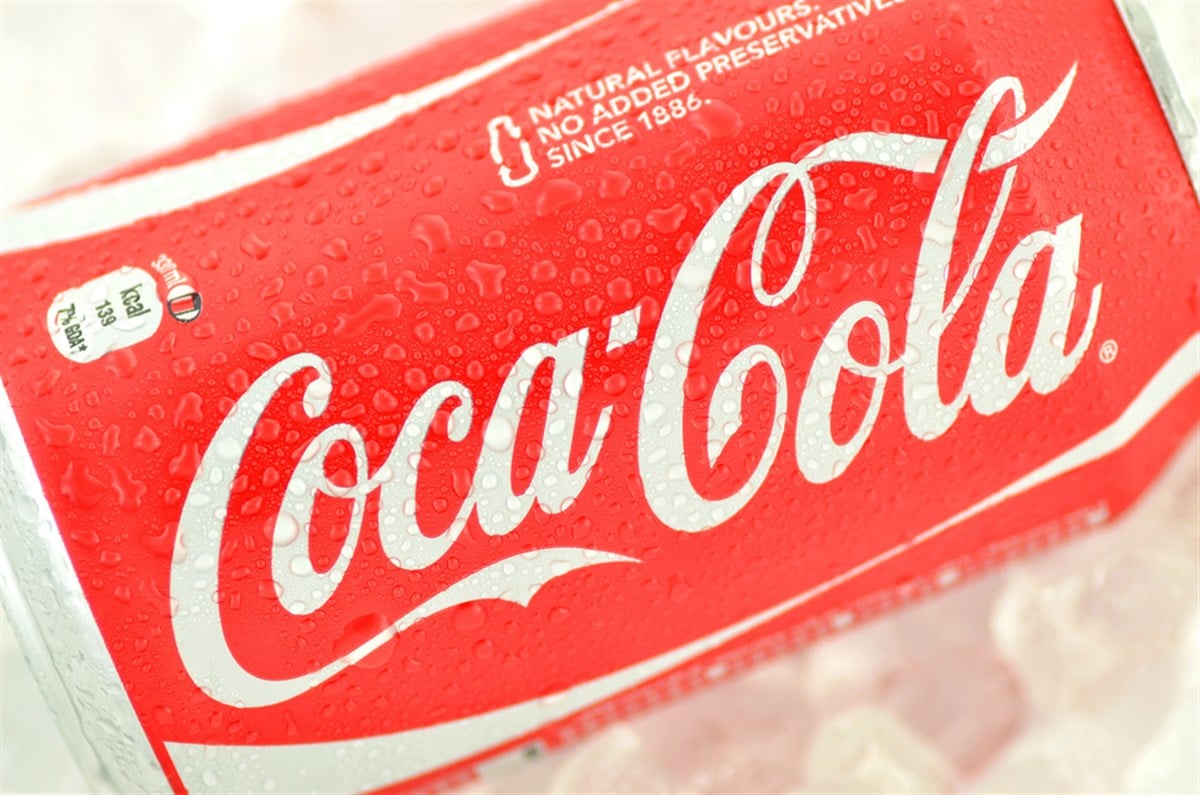Financial News
Coca-Cola Stock Analysis: Key Insights and Trends

Super Bowl commercials are famous for pulling out all the stops to be memorable. Still, some companies have timeless classics that don’t need rebranding: the Budweiser Clydesdales, the E*TRADE babies and, of course, the Coca-Cola polar bears. Few companies have more name recognition than The Coca-Cola Company (NYSE: KO), but the long-time Dow Jones component is much more than soda and nostalgic commercials. Coca-Cola has an extensive portfolio of brands and sells products in more than 200 countries, and the company’s stock has been paying dividends for more than 100 years.
With multiple product lines, industry dominance, and a century of success behind it, is Coca-Cola stock a must-own for your portfolio? In this analysis, we’ll look at Coca-Cola’s recent financial performance, its history as a Dividend King, and the risks and opportunities facing the company in 2024.
Coca-Cola's Financial Performance
[content-module:CompanyOverview|NYSE: KO]Coca-Cola stock performance was slow following the COVID-19 pandemic, dropping more than 30% between February and April 2020. The stock didn’t reclaim its previous high until January 2022 and failed to join the recent bull market run. Looking at the 5-year chart, Coca-Cola stock price has gone nowhere since February 2020, and dividends have been the only source of profit for investors. Is this lack of stock price growth justified by the earnings?
Revenue Growth and Profitability
Coca-Cola is a consumer staples stock, so outsized revenue growth isn’t something investors should expect. During the height of the pandemic, Coca-Cola saw a few quarters of negative revenue growth, but sales rebounded midway through 2021. Revenue has increased for 11 consecutive quarters, although growth is slowing. Here are Coca-Cola’s annual revenue figures for the last 3 years.
|
Year |
Revenue |
YoY Rev Growth Rate |
|
2023 |
$45.75 billion |
6.4% |
|
2022 |
$40 billion |
11.3% |
|
2021 |
$38.7 billion |
17.1% |
While growth is slowing, Coca-Cola’s revenue is still increasing faster annually than its main competitor, PepsiCo Inc. (NASDAQ: PEP). Despite high rates and persistent inflation, Coca-Cola has kept margins steady during the last few years. Net margins, which measure how much revenue is retained as profit after expenses, have been between 21% and 27% every quarter since the start of 2020. During the same time frame, rival PepsiCo’s margins fluctuated between 8% and 12%.
Earnings Per Share (EPS) Trends
Coca-Cola is on a 10-quarter streak of top and bottom-line earnings beats, surpassing analyst estimates on earnings and revenue. However, despite consistently beating analyst expectations, Coca-Cola's earnings per share growth has been limited.
|
Year |
Earnings Per Share |
EPS Growth Rate |
|
2023 |
$2.47 |
12.8% |
|
2022 |
$2.19 |
(-6.7%) |
|
2021 |
$2.25 |
25.7% |
EPS figures have fluctuated, with 2 significant jumps sandwiching a nearly 7% decline in 2022. For 2024, growth of 7.1% is expected, as projections indicate a year-end figure of $3.01. Sentiment is mixed as unsteady EPS growth in a dividend stock can scare off risk-averse investors, but institutions have been net buyers of KO shares over the last 12 months.
Coca-Cola Stock Investment Opportunities
Why do investors like Coca-Cola investment opportunities? Primarily for a strong and consistent dividend and brand recognition across various product lines. While large-cap consumer staples stocks don’t often produce life-changing returns, Coca-Cola still has innovative expansion plans.
Dividend History and Yields
[content-module:DividendStats|NYSE: KO]Consumers might know Coca-Cola's distinctive logo and polar bear commercials, but investors see the company for its long and lucrative dividend history. Coca-Cola has been paying dividends to investors since before the Great Depression, but the company has entered rarified air as a Dividend King. Dividend Kings are stocks that have raised dividend payouts for at least 50 consecutive years, and Coca-Cola has now raised its payout for 63 straight years following the February 2024 increase.
Coca-Cola dividends currently yield 3.14%, with an annualized growth rate of 3.9% over the last 3 years. The payout rate (the percentage of earnings going toward dividend payments) is on the high side at 78.2%, higher than Pepsi’s 76% payout rate, although Pepsi has a lower yield and 11 fewer years of payout increases.
Growth Potential and Innovation
If you’re looking for solid growth and market-beating returns, consumer staples stocks like Coca-Cola will likely leave you disappointed. The company uses a hefty chunk of its profits to pay dividends to shareholders, and growth at all costs isn’t part of the strategy.
However, this doesn’t mean that Coca-Cola is a dinosaur. The company has been a beverage innovator for decades, developing new product lines and establishing relationships with firms like Monster Beverage Corp. (NASDAQ: MNST). In a recent investor presentation, the company highlighted an opportunity in emerging markets where its brand recognition and impact aren’t as strong. The company specifically highlighted Latin America as an area where growth can be harnessed.
Coca-Cola's Market Position and Competition
Coke vs Pepsi has been one of the oldest product rivalries in American history, but how does Coca-Cola stack up as a company compared to its business competition? Here’s where the company stands against its peers.
Coca-Cola's Market Share and Brand Strength
Coca-Cola is one of the dominant players in a competitive industry, with brands like Sprite, Fanta, Minute Maid, Fairlife and SmartWater under its umbrella. Coca-Cola also partners with well-known brands like Powerade, Vitamin Water, Fresca and Schweppe’s. The company’s focus is divided into 4 segments: the Coca-Cola brand, Sprite/Fanta brands, juices/dairy and sports/water. With such a wide range of popular beverages, Coca-Cola is the world's most recognizable soft drink brand, even more so than PepsiCo, despite earning less revenue.
Competition and Industry Trends
Coca-Cola’s two main competitors in the soft drink industry are PepsiCo and Keurig Dr Pepper Inc. (NASDAQ: KDP). Pepsi and Coke have spent decades battling for soft drink supremacy, and both companies are amongst the largest in the world by market cap. PepsiCo earns more total revenue thanks to its food offerings like Frito Lay and Doritos. Still, Coca-Cola has a higher market share in the beverage industry, pays a higher dividend yield and has higher margins on its sales.
Keurig Dr Pepper is a smaller competitor in the beverage space, with more of a focus on coffee and juices like Snapple. KDP’s market cap is less than ¼ that of Coca-Cola’s, makes only about ⅓ of the revenue and pays a lower dividend yield. Despite an increasing consumer focus on healthier (i.e., less sugar) drink options, Coca-Cola remains the top player in the soft drink industry in terms of brand recognition and profitability.
Coca-Cola Stock Risks and Challenges
One benefit of making soft drinks is the relative stability of the demand. Thanks to strong pricing power, Coca-Cola was able to weather the inflationary storm with its margins still intact. Customers were willing to accept price increases on their favorite drinks so Coca-Cola could keep revenue growth moving without sacrificing profitability. What other challenges could KO shareholders face in 2024? Here are a few factors that could influence the stock this year.
Regulatory and Environmental Challenges
Coca-Cola has made sustainability a core goal. According to the company’s investor presentation following Q4, Coca-Cola increased renewable energy usage to 21% in 2022 (up from 12% in 2021) and aims to reduce total emissions by 25% by 2030. Additionally, the company seeks to increase recycled package usage to 50% and replenish 100% of the water resources it absorbs in production.
Despite these initiatives, regulatory and environmental challenges could still impact KO shares. Sugary drinks have become a target of health-conscious legislators, and Coca-Cola has been criticized for the excessive plastic waste it produces. Stiffer laws on sugar content and renewable packaging could influence the company’s costs and production.
Economic Factors and Consumer Preferences
Coca-Cola was an inflationary success story as the company navigated increasing pressures with sacrificing margins. However, with inflation lingering like an unwanted house guest, Coca-Cola must still be mindful of input costs. Consumer staples stocks are often considered ‘recession-proof,’ but changing consumer preferences could leave Coke products more vulnerable than usual.
Sugary drinks like soda aren’t exactly high on the list of health-conscious shoppers. Beverages with excessive sugar content have been linked to diabetes, dental issues and obesity. The company has been investing in healthier alternatives like Vitamin Water and Powerade to offset these changing preferences. Still, soft drink consumption has steadily declined in the United States since 2010.
Expert Recommendations and Stock Outlook
Are you thinking of investing in Coca-Cola shares? Here’s how analysts view the company and project the long-term Coca-Cola stock outlook.
Analyst Ratings and Recommendations
MarketBeat is currently tracking 7 Coca-Cola analyst ratings, down from 12 last year. Of the 7 still covering the stock, 6 have a Buy rating, and 1 carries a Hold rating. A year ago, 9 analysts rated Coca-Cola a Buy and 3 were a Hold.
The consensus view of Coca-Cola stock is ‘Moderate Buy,’ with slightly more upside than the rest of the consumer staples sector but below the growth projections of the S&P 500 as a whole. Investors looking for consistent income through dividend growth will prefer stocks like KO, but those looking for outsized returns will likely seek out different sectors and industries.
Long-Term Outlook and Price Targets
The current consensus price target is $67.22, representing an 8.8% upside from the current market price. Since the start of 2024, 3 different analysts have altered price targets. Barclays and CitiGroup both boosted their Coca-Cola price targets to $68 (from $67 and $66, respectively) while leaving their Buy rating unchanged. JPMorgan Chase Co. also rated the stock a Buy but lowered its price target from $66 to $65.
Coca-Cola's earnings are expected to grow in the next year, and the company has shown resilience in maintaining its margins in the face of rising inflation. However, consumer trends continue to move away from sugary soft drinks, and the company will need to continue investing in new product lines (or altering existing ones) to keep up with these changes.
More News
View More




Recent Quotes
View MoreQuotes delayed at least 20 minutes.
By accessing this page, you agree to the Privacy Policy and Terms Of Service.



